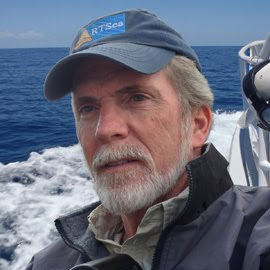 Shark Nets - long standing shark "deterrents" strung along some of the more popular beaches in South Africa and Australia - have become a source of concern among conservationists. It's a concern perhaps not as widely shared among the general population, or beach goers in particular, because of a fundamental lack of understanding as to what the nets can or cannot do.
Shark Nets - long standing shark "deterrents" strung along some of the more popular beaches in South Africa and Australia - have become a source of concern among conservationists. It's a concern perhaps not as widely shared among the general population, or beach goers in particular, because of a fundamental lack of understanding as to what the nets can or cannot do.In an excellent article in Africa Geographic, written by premier underwater photographer Thomas Peschak, chief photographer for the Save Our Seas Foundation, the history and issues regarding South Africa's shark nets are detailed.
As Thomas, a South African himself, points out, the nets have been in place in his country for over 40 years, totaling some 27 miles by the late '80s. The problem with the nets is that they actually don't deter or keep out the sharks - they catch and kill them. The Natal Sharks Board reported that nearly 34 thousand sharks were caught in these nets from 1978 to 2008, the majority of which were species that posed no threat to humans. Interestingly, for those who felt safe from any "killer" shark, a large percentage of the sharks were caught on the beach side of the net, as the shark was making its way out of the area.
But the nets - basically gill nets by design - are random killers, catching turtles, dolphins, and even whales. This unintended bycatch has fueled the conservation debate and the trend in South Africa is slowly moving towards the use of drum lines (baited hooks) and even a possible reduction of the use of any nets or deterrents at all in less populated beaches.
 Peschak takes the realistic position that we can not expect all nets or deterrents to disappear any time soon; as long as there are large numbers of beach goers - representing a sizable tourist economy - then the priority of providing a "safe" beach will probably prevail. But he asks the proverbial question: if science can make such advances as cancer cures and moon landings, could we not come up with a method of shark deterrence that is less destructive? I concur. The methods have not changed much in 3 to 4 decades and have only reinforced both the idea that humans have a greater right to the oceans than its inhabitants and that sharks as a whole are dangerous and must be dealt with severely (an attitude illustrated in the Australian press regarding the government policy to hunt down and slaughter any shark reported to have been involved in biting a human).
Peschak takes the realistic position that we can not expect all nets or deterrents to disappear any time soon; as long as there are large numbers of beach goers - representing a sizable tourist economy - then the priority of providing a "safe" beach will probably prevail. But he asks the proverbial question: if science can make such advances as cancer cures and moon landings, could we not come up with a method of shark deterrence that is less destructive? I concur. The methods have not changed much in 3 to 4 decades and have only reinforced both the idea that humans have a greater right to the oceans than its inhabitants and that sharks as a whole are dangerous and must be dealt with severely (an attitude illustrated in the Australian press regarding the government policy to hunt down and slaughter any shark reported to have been involved in biting a human).Click here to view a great video of Thomas Peschak discussing the history and status of SA shark nets (contains a PDF download link to his Africa Geographic article).

















No comments:
Post a Comment